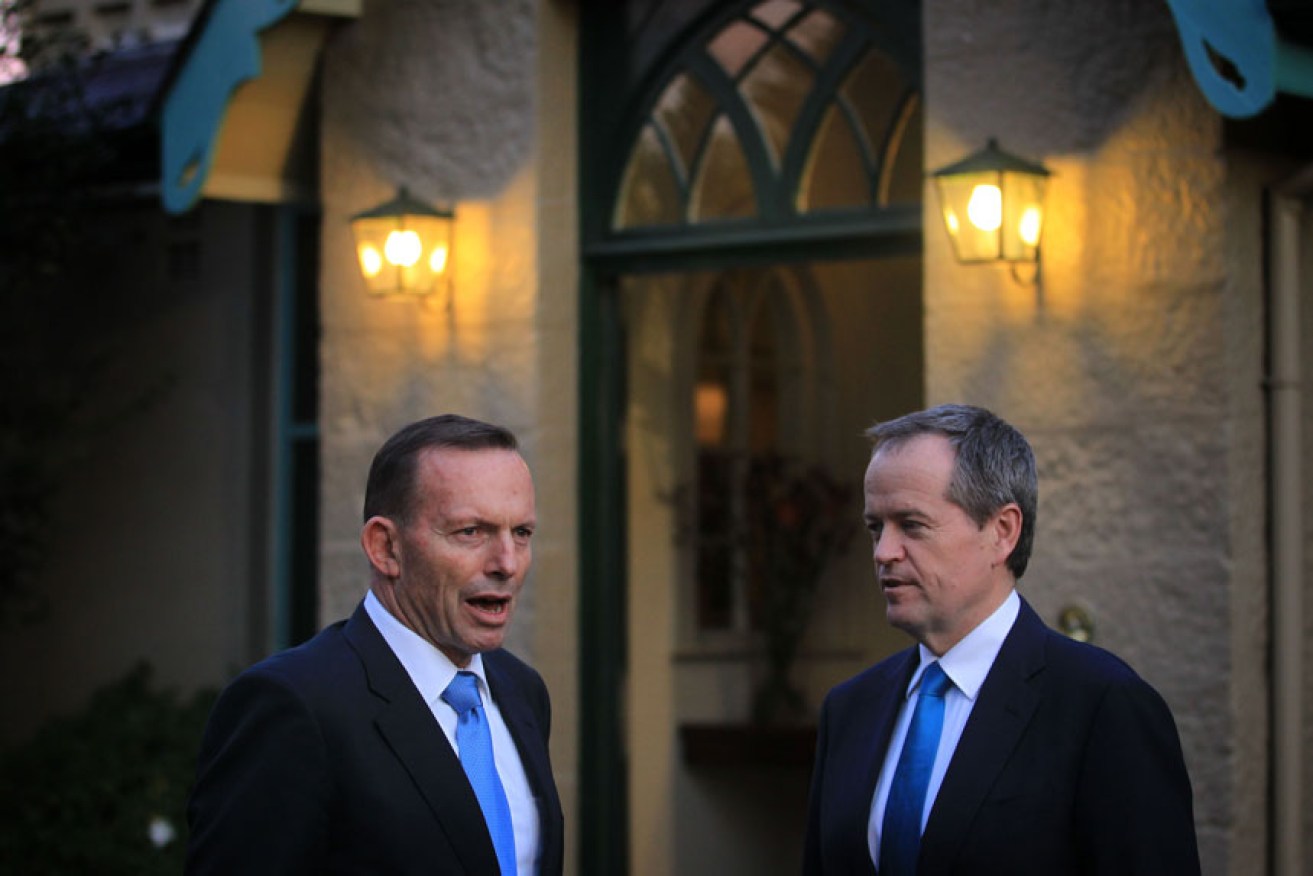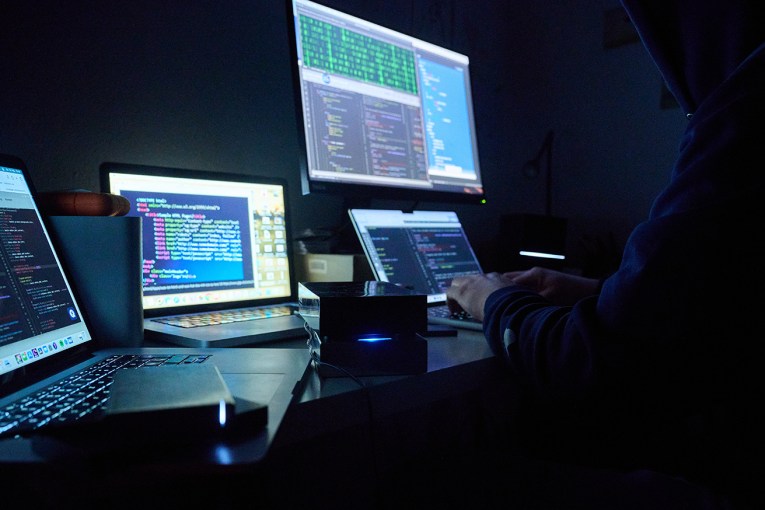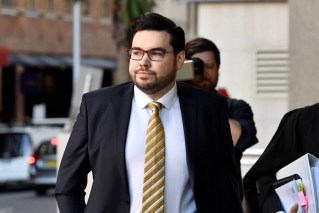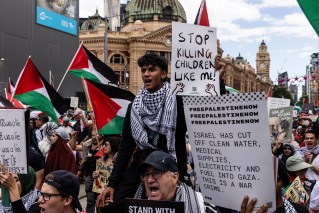Abbott, Shorten support indigenous vote

Prime Minister Tony Abbott says people will be invited to have their say on constitutional recognition of Indigenous Australians in a series of community conferences starting later this year.
Mr Abbott and Opposition Leader Bill Shorten hosted a joint summit with about 40 of the nation’s most influential Indigenous representatives at Kirribilli House in Sydney on Monday.
Speaking after the meeting, Mr Abbott said the talks on the wording of the possible referendum were collegiate.
• Referendum failure would be ‘catastrophic’
• Indigenous recognition a ‘fifth order issue’
• Majority support for indigenous recognition
He said community consultation was the next step.
“What I think we’ve done today is laid out a process which will enable all Australians to have a deeper better informed and much more structured conversation about what this constitutional change could look like,” he said.
Mr Abbott said the community conferences would address some of the issues that divided participants in Monday’s summit, like the push for the constitution to include a racial discrimination clause.
“I am confident that the time is right, I think that there is an abundance of goodwill, I think that we are good enough, big enough and brave enough to do this, but it is important that we get it right and that’s what today’s process is all about,” he said.
Mr Abbott said he hoped the wording of the referendum would be finalised by the middle of next year, with a vote in 2017.
Mr Shorten said the summit had maintained the momentum towards a vital change.
“I think at the heart of what was spoken about today, is a recognition that if this nation is to move forward, we need a constitution which recognises all Australians and doesn’t exclude our first Australians,” he said.
There is currently no mention of Aboriginal and Torres Strait Islander people in the constitution, and no recognition they were the first Australians.
Progress made at ‘terribly meaningful’ event: Dodson
West Australian Indigenous leader Patrick Dodson said Monday’s summit was respectful and constructive.
“It was a great occasion, a great event, a historic event and terribly meaningful, I think, in the context of what we’re trying to do around a very complicated matter,” he said.

Tony Abbott and Bill Shorten pose for a photograph with Indigenous leaders. Photo: AAP
“We didn’t come to concluded views on models or propositions but I do think we made a fair amount of progress on the steps that are needed to go forward.
“The details, of course, are going to have to be nutted out but at least the broad framework and parameters were agreed.”
Kirstie Parker, the co-chair of the National Congress of Australia’s First Peoples, said the summit brought together a diverse range of voices, all aiming to right a wrong in Australia’s history.
But she said it is just the first step.
“We believe this process must bring about substantive reform. We don’t believe that symbolic change is enough,” she said.
Monday’s meeting came in the wake of a Fairfax-Ipsos poll which said 85 per cent of people supported the constitutional recognition of Aboriginal and Torres Strait Islander people as Australia’s first inhabitants.
Pearson wants elders given voice in Federal Parliament
Noel Pearson, the founder of the Cape York Institute for Policy and Leadership, told the ABC’s Lateline the meeting was a good start, but “largely redundant”.
“Everybody gave speeches around the table and the Prime Minister allowed everyone to speak and speak twice in my case and other people’s cases who can’t stop talking,” he said.
“The process had been predetermined. In terms of input to the process going forward, the exercise was largely redundant but it was a good chance to hear everybody make a commentary around where they stood in relation to recognition.”

Noel Pearson. Photo: Getty
As part of constitutional recognition, Mr Pearson is pushing for an all-Indigenous body, elected by Indigenous people, to make representations in Federal Parliament.
“I’ve been pushing the idea of a constitutional body to enable us as Indigenous people to talk about our heritage, our communities, our native title and our languages and culture in a way that parliament can hear us,” he said.
“Indigenous people must choose [the representatives]. I’d like to see eminent elders speaking to our Parliament about issues of concern to them.”
He said constitutional recognition would empower the next generation of Indigenous Australians.
“I have this great hope that my children are going to be Australians, they’re going to participate in the political life of this country unrestrainedly,” he said.
“At the moment for example we’re characterised as a race and it affects our whole psychology, not just the blackfellas, the whitefellas too, because the whitefellas think we’re a separate race and treat us as a race and we ourselves have internalised that.
“I think the moment we move to recognition of Indigenous first nations we’ll enter a phase where race will just be a concept from the 19th and 20th century that we put behind us, and we as blackfellas won’t have this negative idea of race about ourselves and hopefully the wider community will stop having low expectations of us.”
-ABC








